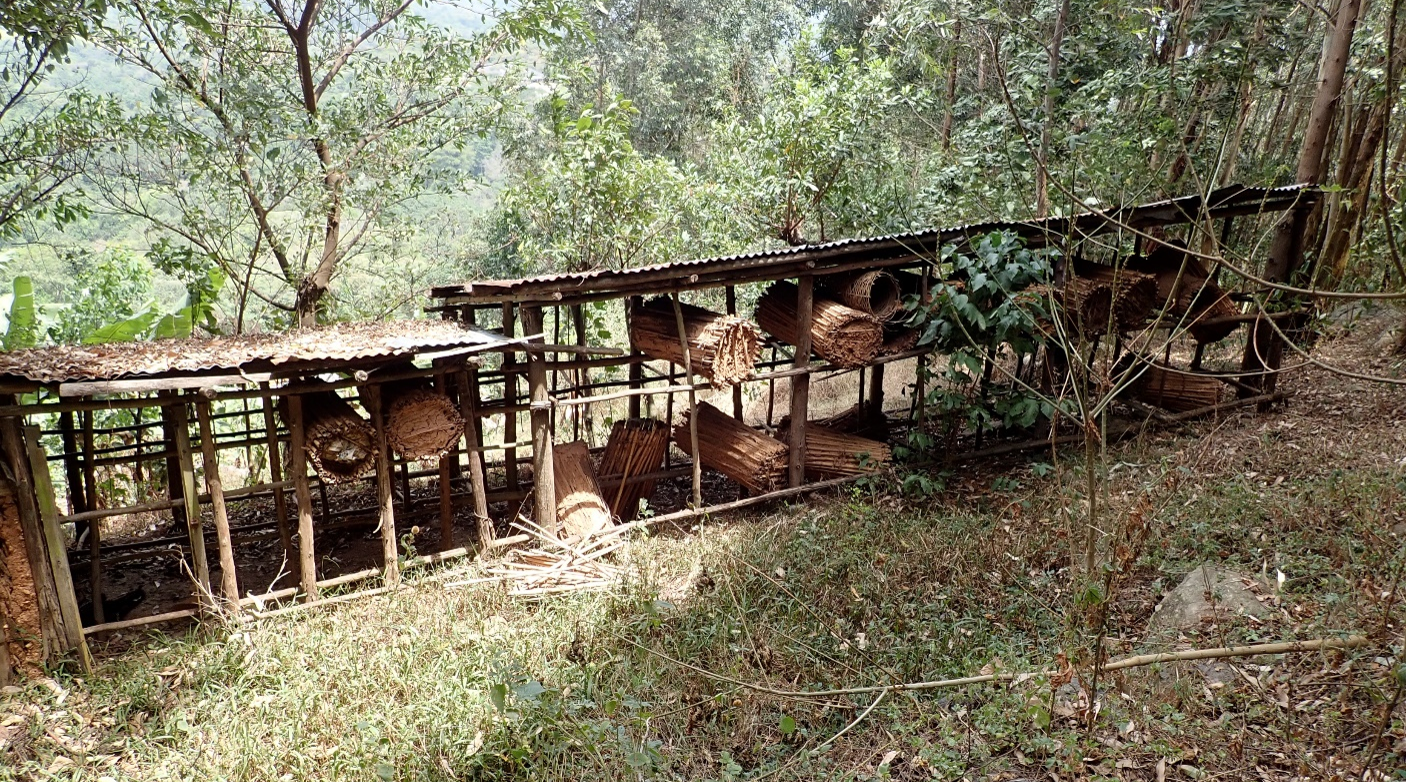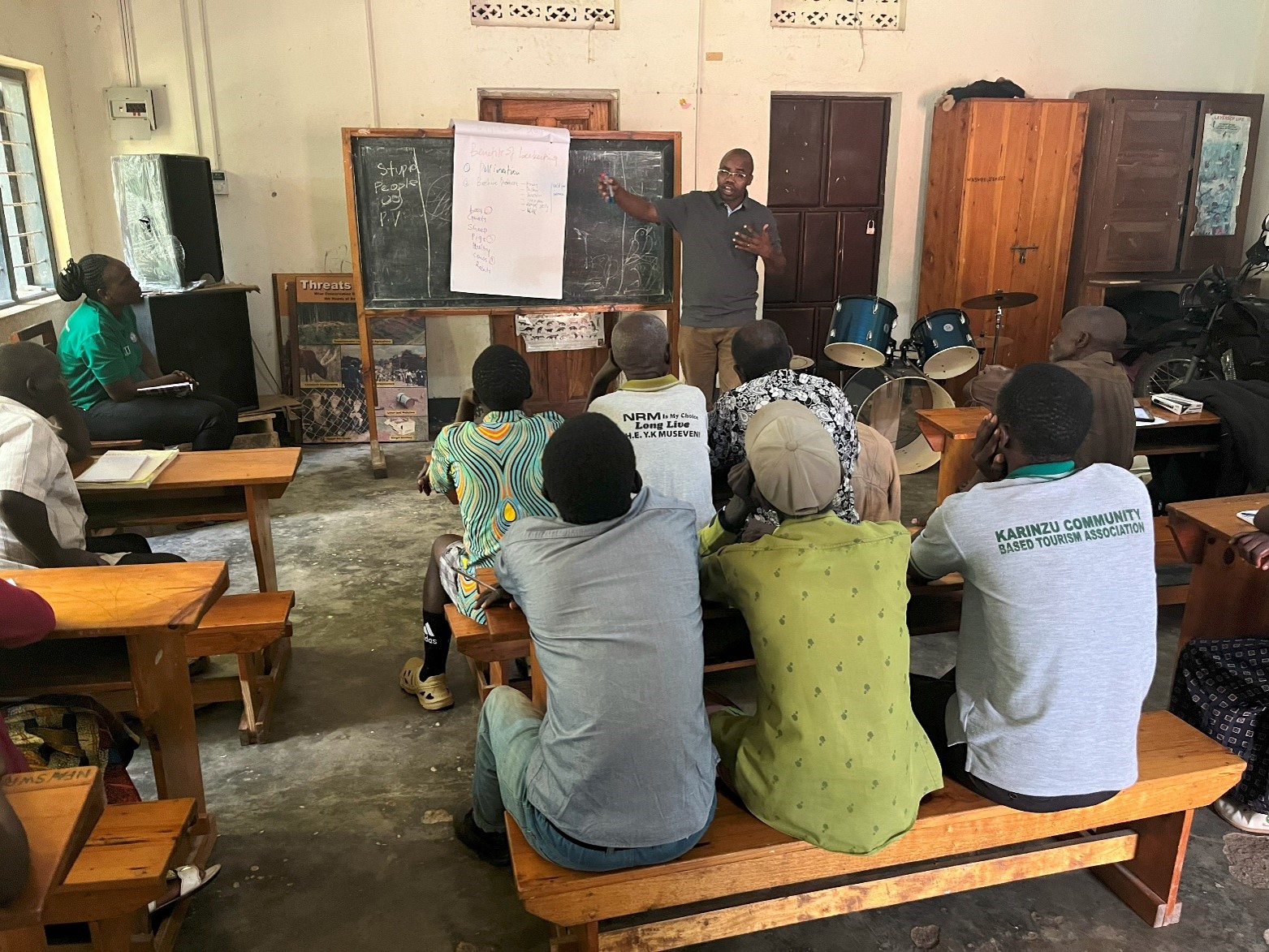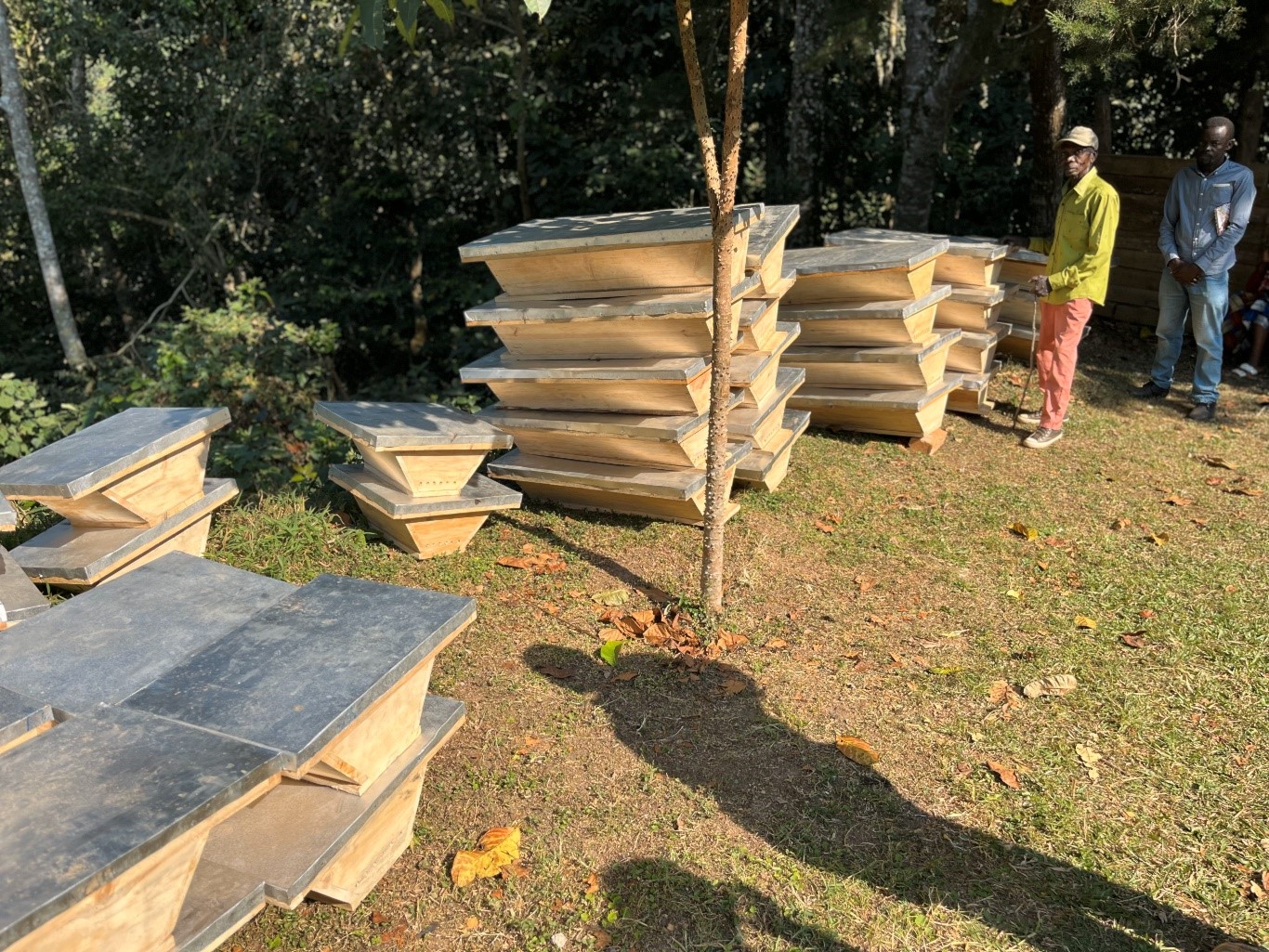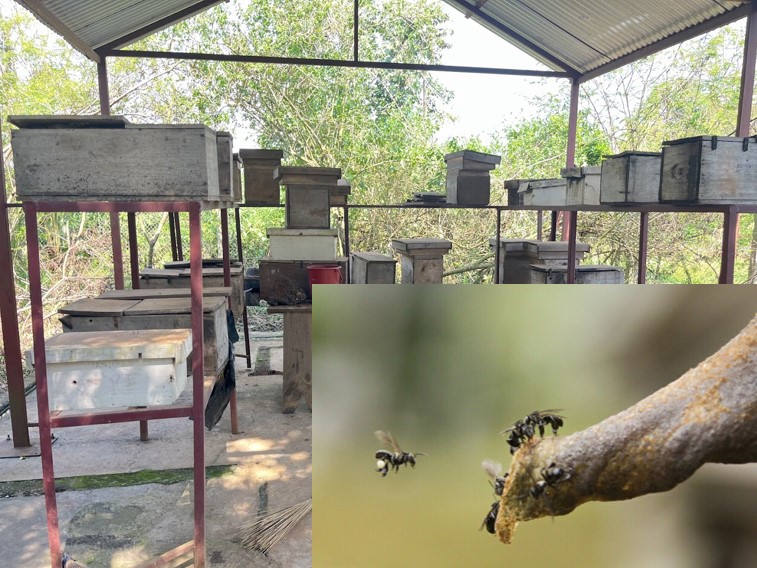

Another promising initiative that emerged through collaboration with local residents is the promotion of beekeeping. Beekeeping is a source of income that does not harm forest resources. Furthermore, revitalizing beekeeping can also raise awareness about the importance of conserving forests, which are essential for nectar production.�
While commercial beekeeping exists in some areas of Uganda, it has not been successful around Kalinzu Forest due to a lack of modern equipment and technical know-how. To address this, we dispatched a beekeeping specialist from our team to the area. We organized a training seminar on modern beekeeping techniques and provided commonly used beehives for hands-on training. If successful, villagers are expected to use the income from honey sales to independently purchase beehives and expand their beekeeping operations.
Training workshop

New bee hives

In addition, we are considering introducing stingless beekeeping, which has gained practical application in parts of Asia and Africa over the past decade. Stingless bee honey is rich in propolis—a compound known for its medicinal properties—and has a high market value. We have already successfully raised stingless bees experimentally captured in Kalinzu Forest, and we are now considering expanding this initiative to the villages.�
Keeping stigless bees

